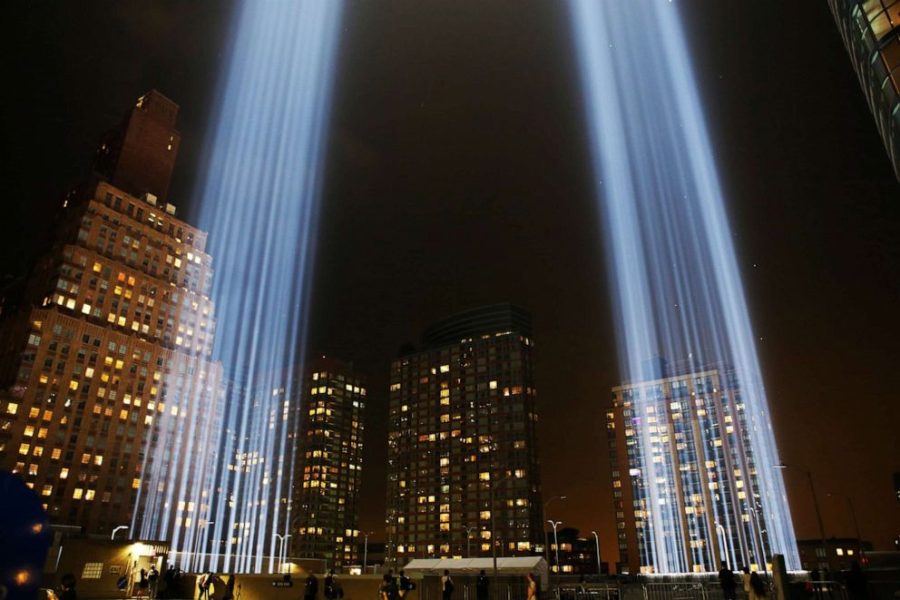The politicization of Sept. 11 heightens division
The event that should serve as a unifying force has been appropriated by both the political left and the political right
The attacks of Sept. 11 should be a unifying force, but they seem not to be anymore, writes Conor Metzger.
September 25, 2022
Every year, the politicization of the Sept. 11 attacks — along with the contention that the political right has the only claim to honor its victims — gives me a sense of discomfort. I have observed that conservative media outlets are centered on a singular topic of discussion: how the event led to national unity and gave Americans a common goal to work towards.
Left-leaning media outlets, on the other hand, talk more about the scale and tragedy of the attacks while lamenting the unnecessary wars caused by military adventurism in the Middle East. Much of the U.S. government’s response to Sept. 11, 2001, can be interpreted as even worse than the tragedy that occurred that day. The number of innocent Afghans killed in drone strikes — by presidents of both parties — has far surpassed the casualties within the towers.
Fringe views beget controversy, and controversy begets attention.
The Sept. 11 attacks were surely a turning point in the political zeitgeist — everyone agreed that a tragedy had just occurred, but many also understood that an overreaction was about to take place. In the years since, more information has come to light on this reaction, like the lies of possible weapons of mass destruction (WMDs) being located in Iraq, the CIA’s use of “enhanced interrogation techniques” — otherwise known as torture — and the witnessing of a decades long, wasteful and futile occupation of Afghanistan. All of these atrocities were justified by the tragic events of Sept. 11, illustrating how this event has become a political punchline used by each party to serve their respective wants.
Sept. 11, 2001, was a day that had the opportunity to be a chapter of American history we could look to as an example of unity. Instead, it’s used to argue how either: A) the Republicans are the party of patriotism, only seeing how the attacks has affected Americans; or B) the Democrats are the party of warm hearts, only seeing the pain that Sept. 11, 2001, and its aftermath has caused non-Americans.
The narrative surrounding Sept. 11, 2001, and its remembrance is unfortunately another spectacle in the political landscape we have created. The lack of nuance — or the lack of recognition of nuance — has caused some on the political left to only see the Islamophobia and greed that arose from the attacks, making others on the political right wish to safeguard the memory of that day as a day where the United States was called to show its strength. The key word here, though, is “some.” Most people still understand the complexity of that date, but the public debate doesn’t represent whatever it is most people look to, but rather the fringe views of both sides.
It’s human nature for the outermost views to take the forefront. Fringe views beget controversy, and controversy begets attention. But it’s interesting we don’t see the same thing happening with Sept. 11 that happened with Pearl Harbor, even after the resulting internment of Japanese Americans that became a resulting stain on our nation’s history. What is it about these times in particular that cause people’s divisiveness to be highlighted? Are the days of unity in America gone, or is unity an ideal we have never truly reached?
It’s possible that, with the rise of the internet, dissenting viewpoints are now given a greater platform, which is not necessarily a bad thing. But there is something to the loss of neighborly love that people simply just do not feel for each other. The last time this was felt — if even for a moment — was Sept. 11. Now, even the memory of this day is colored by personal ideologies.
The question that arises from this is concerning. What happens when the country is not able to come together in a time of crisis? Will we be swallowed up, arguing over frivolous word meanings while an enemy invades? The attacks of Sept. 11, 2001, were a national tragedy that was an attack on the United States and all of its citizens. We should be able to look back and remember a time where we all felt part of an ingroup, for now it seems all we create is outgroups, which leads to a very lonely time for us all.






















